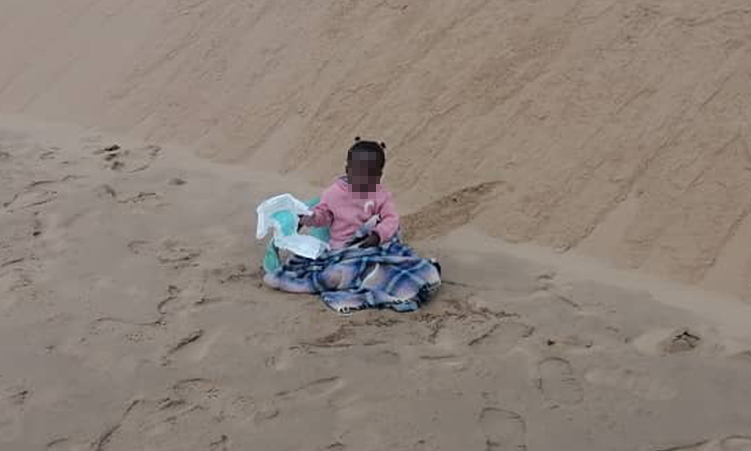Medicine and other clinical supplies worth N$20 million kept at the Rundu Medical Store are at risk of going to waste due to a dysfunctional cooling system at the hospital.
This was recently revealed by the parliamentary standing committee on health.
The medical store at Rundu caters for the Kavango East and West regions.
Rundu Intermediate Hospital has ongoing challenges in repairing the cooling system of the facility, which broke about two years ago.
The store is one of three major medical stores in the country and supplies medicine to all hospitals and clinics in the Kavango East and West regions.
Rundu Intermediate Hospital chief medical officer Dr Etuuva Iindongo, who is one of the officials in charge of the Rundu Medical Store, has told the parliamentary standing committee it would cost the government about N$500 000 to repair the dysfunctional air conditioning system.
“Sometimes these situations are caused by the long procurement processes that hinder the whole process. Such things I consider as an emergency, however, the response we got from the ministry is that it is not an emergency to fix the air conditioners,” Iindongo said.
He said despite being an emergency, the procurement process would take about 30 days or more.
“Until now there has been no progress, although we have made a request,” he said.
Iindongo said the ministry would have to consider the budget it has received for the financial year.
Dr Nelson Olabanji has concurred that the hospital’s request for funds to fix the cooling system was rejected by the Ministry of Health and Social Services, which argued that the matter was not an emergency.
“The medicine went bad, and last time there were some ointments and creams that melted because they were exposed to high temperatures.
“The deputy executive director of the ministry was also here last year in November and she saw this,” he said.
As a result, Olabanji said they had to dispose of some medicines. The Namibian yesterday reached out to Ministry of Health and Social Services executive director Ben Nangombe, who said the ministry would issue a media statement on the matter.
According to the committee, the Rundu Medical Store also appears to be dirty and in disarray. Olabanji said the air cooling system became dysfunctional in 2020.
“The stock in the medical store is worth N$20 million. In the last financial year, we spent around N$55 million on medicines,” he said.
A senior artisan at the hospital who could not be identified said 13 air conditioners at the store are not functioning and can no longer be repaired.
‘POOR NETWORK’
Rundu Intermediate Hospital superintendent Dr Jean Kabangu has additionally informed the committee that patients sometimes have to wait more than 30 days to receive their X-ray results.
This is due to poor network connectivity, he says.
Kabangu says this is one of many challenges hindering the delivery of quality healthcare at the hospital.
“Even the mobile network is poor. The computers cannot download the X-ray images faster due to poor network,” he says.
Nangombe last week said the health ministry launched a picture archiving system for the management of X-ray services a month ago, meaning that if a patient had an X-ray taken at Rundu, the images could be shared with specialists in Windhoek.
Nangombe said this was to ensure improved health services delivery.
LACK OF SPECIALISTS, AGEING AMBULANCES
Kabangu says the hospital has insufiicient office space and a lack of specialists.
“Our laundry and kitchen equipment have reached their lifespan. We take our laundry somewhere else. Our nurses have nowhere to rest since the chairs are old and worn out.
“We are in the process of motivating renovations, and we need a mental health unit.
“We have 19 psychiatric patients at the moment, of which 15 are in the wards with other patients, and this is not appropriate for such patients,” he says.
Kabangu says the hospital also needs dental and ophthalmology units.
“We have eight ambulances, but only four are working. The biggest challenge is that our fleet is ageing,” he says.
“Last week an ambulance just stopped on its way to delivering a patient, and this was the most reliable ambulance,” he says.
“There is a lack of specialised equipment. Most of our instruments have reached their lifespan. If we go to the theatre, colleagues are frustrated because when they want to operate the instruments are tight, and when they want to stop patients’ bleeding, the forceps are not holding,” he says.
Kabangu says many young Namibian specialists do not want to work at Rundu Intermediate Hospital.
“Most of our specialists here are foreigners, and those available in Windhoek have private practices. We are in need of local specialists.”
POOR WORKMANSHIP
Rundu Intermediate Hospital received a new maternity ward – a facility with a capacity of more than 100 beds – two years ago.
Despite doctors and nurses at the hospital informing the committee of how happy they are about the new ward, they say the building has already started crumbling.
A nurse who wanted to remain anonymous has told the committee that the entire plumbing system needs to be redone after discovering that some toilets had been installed, but had not been linked to the sewer system.
Taps and showers in several bathrooms have been leaking since the building started to be used, she says.
“The toilets are mostly on and off and are always leaking. Most of the time they need maintenance,” the nurse says.
NO LAUNDRY
In addition, the committee has found that the hospital barely has enough linen, while staff members are struggling to keep the available linen clean.
The committee says this is due to a dysfunctional laundry room, which is on the verge of collapse. As a result, the hospital transfers its laundry to surrounding clinics and hospitals.
This, however, takes time and jeopardises the service of several hospital departments, the committee says.
According to the committee, hospital officials blamed the faulty laundry service on the procurement system.
They have told the committee their petitions to the Ministry of Health and Social Services for funds to repair and replace malfunctioning laundry machines have not been considered as emergencies.
The parliamentary standing committee visits healthcare facilities countrywide to assess their status.
Stay informed with The Namibian – your source for credible journalism. Get in-depth reporting and opinions for
only N$85 a month. Invest in journalism, invest in democracy –
Subscribe Now!





